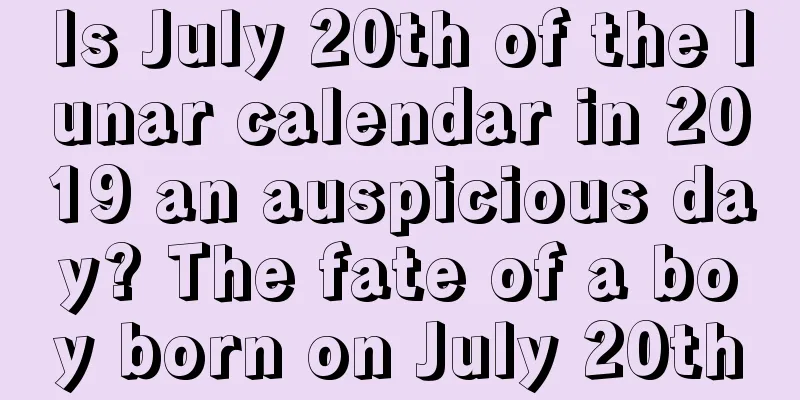Why do temples give out porridge on Laba Festival? Why is Laba Festival called Laba Festival?

Introduction: Laba Festival is a very important traditional festival, and it is also a festival with important significance. So why do temples give out porridge on Laba Festival? Why is Laba Festival called Laba Festival? In the twelfth month of the lunar calendar, the coldest days of winter arrive as expected. Shuimoxiansheng.com presents you with wonderful content for the twelfth month of the lunar calendar in 2018.Why do temples give out porridge on Laba Festival?Laba Festival was originally a Buddhist festival, and its formation is also related to the legend of Buddha Sakyamuni's enlightenment. In the 5th century BC, more than 2,500 years ago, according to the "Karma Sutra", in the northern part of ancient India, which is today's southern Nepal, there was a king named Suddhodana in the Kapilavastu Kingdom. He had a son named Siddhartha Gautama. When he was young, he felt the various sufferings of birth, aging, sickness and death in the world. He found that social life was tiring and useless, and was extremely dissatisfied with the theocracy of Brahmanism. So, at the age of 29, he gave up the throne and the luxurious life in the palace, became a monk, learned and practiced yoga, and practiced asceticism for 6 years. Around 525 BC, one day, he walked down Mount Kadu and came to the sparsely populated kingdom of Magadha. He was skinny and emaciated, and fainted on the banks of the Nile River in Bihar due to exhaustion, hunger and exhaustion. By chance, a shepherdess in the village found him, and she boiled the grains and wild fruits she carried with her into a milky porridge with spring water and slowly fed it to him. He felt that the "porridge" was as delicious as sweet honey, and he felt refreshed and gradually recovered his strength. He took a bath in the Nile River, and then sat under a Bodhi tree in Bodh Gaya, meditating on the true meaning of life and the way to liberation. He vowed, "If I cannot attain the supreme enlightenment, I would rather let my body shatter into pieces than get up from this seat."He finally achieved enlightenment and became a Buddha, and founded Buddhism. According to historical records, this day was the eighth day of the twelfth month of the Chinese lunar calendar. Because he was a member of the Sakya clan, Buddhists respectfully called him Sakyamuni, which means the saint of the Sakya clan. At the same time, in order not to forget the suffering he endured during his six years of ascetic practice, Buddhists only ate some hemp and wheat every day. In order to commemorate the kindness of the shepherdess, they imitated the shepherdess's "mixed porridge" and ate it on the eighth day of the twelfth lunar month, the day of Buddha's enlightenment, to commemorate him. After Buddhism flourished, the ancient Indian people designated this day as the day for "feeding monks", "Buddha's Enlightenment Day" and a day for giving food to the poor. In the early Eastern Han Dynasty, after Buddhism was introduced to my country, temples were built all over the country and the activity of cooking porridge to worship Buddha became popular. Especially on the eighth day of the twelfth lunar month, the day to commemorate Sakyamuni's enlightenment, all temples would hold sutra chanting sessions and cook porridge to worship Buddha, imitating the legendary procedure of the shepherdess offering a kind of "chyle" before the Buddha's enlightenment. Why is Laba Festival called Laba Festival?According to ancient records, "La" was also called "La" in ancient times. The three words "La", "La" and "Lie" refer to the ritual in ancient times where people went wild to hunt animals for use in offering sacrifices to their ancestors and the gods of heaven and earth, in order to pray for a good harvest in the coming year and for safety and good fortune for their families. This was called "La Festival". Because this sacrificial ceremony is held at the end of the year, people call December the La Yue. The meaning of the twelfth lunar month has three connotations: on the first day, "La means connection", which implies the alternation of the old and the new (Book of Sui, Rituals and Etiquette); on the second day, "La means hunting", which refers to hunting for animals to sacrifice to ancestors and gods, and "La" is derived from the character for meat, which means using meat for "winter sacrifice"; on the third day, "hunters drive away epidemics and welcome spring" (Jingchu Sui Shi Ji). This "La Festival" is said to have started in the Shennong era. The emperors of the Xia, Shang and Zhou dynasties all attached great importance to this sacrifice. They would kill chickens and sheep to offer sacrifices to the gods and ancestors, hoping that the heavens, the earth and the ancestors would bless them with a good harvest in the coming year. However, the date of "La Festival" is not fixed, sometimes it is at the beginning of December, sometimes it is at the end of December. After Emperor Wu of the Han Dynasty unified the lunar calendar, the "La Festival" was fixed on the third Wu day after the winter solstice. Coincidentally, the third Wu day of the first year was the eighth day of the twelfth lunar month, so people set this day as the day of the "La Festival", called the "Laba Festival". |
Recommend
What should we pay attention to during the Autumnal Equinox? Introduction to the precautions for the Autumnal Equinox
As one of the twenty-four solar terms, the Autumna...
Is it possible to offer sacrifices on May 16th of the lunar calendar in 2019? Is it auspicious to offer sacrifices to ancestors today?
Introduction: Sacrifice is an important matter, so...
Analysis of the lucky god's position on the 27th day of the fifth lunar month in 2020
Analysis of the direction of the God of Luck on M...
Is the tenth day of the tenth lunar month in 2021 an auspicious day for engagement? What should you pay attention to when getting engaged?
Engagement is one of the big events, so an auspici...
Is it a good idea to pray on the eighth day of the third lunar month in 2020? What time can I pray on that day?
The choice of time to pray is actually very import...
Is it a good idea to pick up a new car on the seventh day of February 2019?
Spring is a season of vitality and revival, but t...
Is it good to get pregnant at the beginning of autumn? What should you pay attention to when preparing for pregnancy after the beginning of autumn?
Introduction: The Beginning of Autumn is one of th...
A complete analysis of the fate of boys born on the 27th day of the first lunar month in 2021
The fortune of a boy is related to the time of his...
Is it suitable to go out on the 28th day of the 12th lunar month in 2020? Is there anything bad about it?
Is it suitable to go out on the 28th day of the 12...
Is the 26th day of the first lunar month in 2018 a good day? Is it suitable for traveling far away?
Introduction: According to the tradition of our co...
Is the Jingzhe Festival on March 6, 2019 a suitable day for traveling? What are the customs of Jingzhe Festival?
Introduction: Every day has its good and bad fortu...
Is it a good idea to hold the funeral on April 18th of the lunar calendar in 2020? How are you doing?
Funeral refers to putting the coffin into the tomb...
Which day is the best for moving in July 2020? How many days are left before the White Dew Festival in 2020?
Introduction: It is necessary to choose an auspici...
Is it not appropriate to get engaged on Laba Festival today in 2020? Which religious festival is Laba Festival?
Introduction: Generally, an auspicious day is need...
What is the auspiciousness or inauspiciousness of the fourth day of the tenth lunar month in 2019? Is it suitable to go to the temple to burn incense and worship Buddha?
Every day has its luck and bad luck. You need to r...









